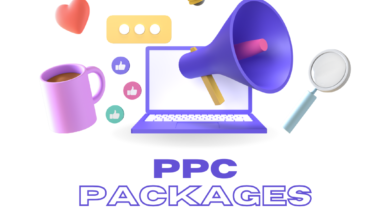
ERP software is widely regarded as one of the most valuable tools a business can have in its arsenal. From streamlining processes to improving communication and overall efficiency, ERP systems can have a tremendous impact on a company’s bottom line. However, not all advantages of using ERP software are clear-cut. In this article, we’ll explore some of the benefits and disadvantages of using an ERP system, so you can decide for yourself if it’s the right solution for your business(Importance of erp).
What is ERP system?
ERP system is a comprehensive business software that helps to manage all the company’s operations and data. It helps to improve efficiency by automating processes and providing tools for tracking and reporting. ERP systems have become increasingly important as businesses have shifted their focus from manual to electronic transactions.
Enterprise resource planning (ERP) systems are computer applications that manage a company’s entire business operations, including inventory, finance, manufacturing, and customer relationships. ERP systems can automate many of the tasks employees would traditionally perform manually, saving companies time and money. There are so many ERP Implementation Consultant in the market. Some of the most popular ERP systems include SAP and Oracle.
They can include everything from customer relationship management (CRM) to enterprise resource planning (ERP) to supply chain management (SCM). ERP systems can automate a variety of tasks, including purchasing, accounting, human resources, and information technology. They can also help organizations optimize their operations and save money.
Benefit of ERP: Explore Advantages and Disadvantages
There are many benefits to using an enterprise resource planning (ERP) system in your business. An ERP system can help streamline processes and make data management easier. It can also improve communication and collaboration between different departments, saving time and money. However, there are also some potential disadvantages to using an ERP system. First, a use of erp in business can be expensive to implement and maintain. Second, it can take a long time to learn how to use it effectively.
They can help businesses automate and optimize their processes, improve communication and collaboration, and reduce costs. However, there are also some disadvantages to using ERP systems. For example, they can be complex to use and may require a lot of training for employees. Additionally, ERP systems can be pricey to set up and maintain, so businesses may need to make sure that the benefits outweigh the costs. Finally, an ERP system may not be suitable for all businesses. ERP has a lot of advantages and disadvantages. Here are some of the most important ones.
Advantages of ERP systems
ERP is a software system that integrates business processes and data. The purpose of ERP is to improve efficiency, improve customer service, and to manage resources more effectively. ERP has many benefits that include:
- ERP systems can help organizations save time and money by automating business processes.
- They can also improve communication and coordination between different parts of an organization, making it easier for people to work together.
- ERP systems can help organizations automate their processes. This can save time and resources and make it easier to track data.
- Most ERP systems are easy to learn and use, regardless of a business’ size or industry.
- By consolidating data from different sources, ERP systems can help businesses achieve greater efficiency and productivity.
- ERP can help businesses to operate more efficiently by making it easier to track and manage information.
- With improved tracking of customer information, businesses can provide better customer service by understanding the needs of their customers.
A computerized enterprise resource planning (ERP) system can help businesses automate and improve their operations by providing a centralized platform for managing all aspects of their business. Some benefits of ERP systems include: improved efficiency, accuracy, and transparency; reduced costs; and increased productivity. However, there are also some potential drawbacks to consider, such as the need for a large upfront investment and the possibility that ERP systems may not be suitable for all businesses.
Disadvantages of ERP systems
ERP systems are valuable tools that can help businesses manage and grow their operations. However, there are several disadvantages to using ERP systems that should be considered before making the switch.
- ERP systems can be expensive to implement and maintain.
- They can be difficult to learn and use.
- They can take up a lot of space on servers and storage devices.
- They can be slow and cumbersome to use.
- They may not provide the level of customization required by some businesses.
- ERP systems may not be suitable for all types of businesses.
Conclusion
In conclusion, ERP systems are a valuable business tool with many advantages. However, businesses should also be aware of the potential disadvantages before making a decision to implement an ERP system. By exploring the advantages and disadvantages of ERP systems, businesses can make an informed decision about whether or not an ERP system is right for them.



